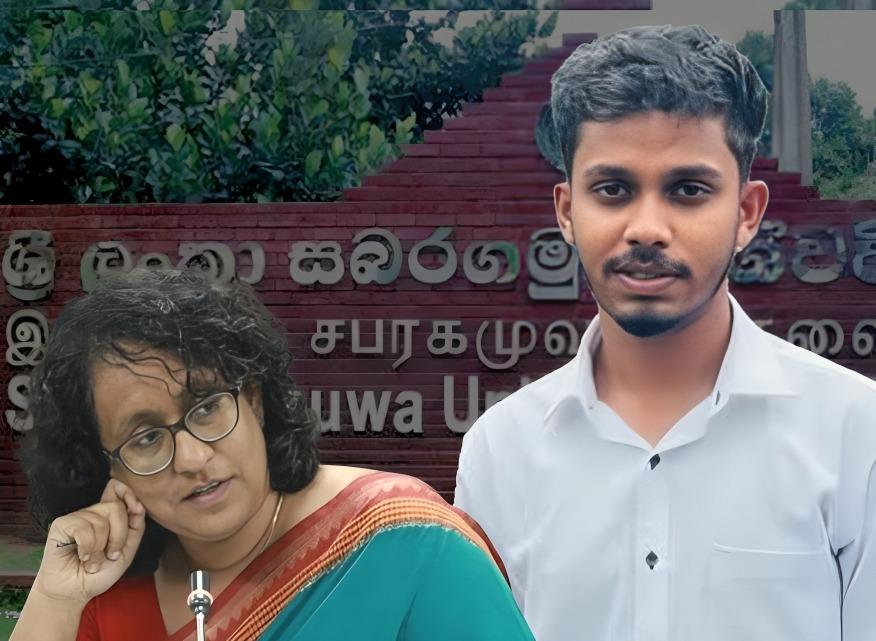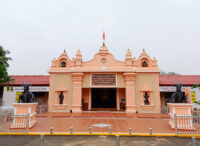Another young life extinguished. Another family shattered. There is another hollow statement of “deep sorrow” from the very institutions that cultivated the culture of violence responsible for this senseless death.
Charith Dilshan, a promising second-year Engineering Technology student at Sabaragamuwa University, has become the latest victim of Sri Lanka’s barbaric university ragging system. His name now joins a growing list of bright minds destroyed by a practice that powerful political forces have tolerated and actively nurtured for decades.
The Inter-University Student Council’s “deep sorrow” expression rings hollow and obscene. This is the same organization that has systematically embedded violent ragging into campus culture, transforming universities from centres of learning into breeding grounds for brutality.
Behind this deadly charade stands the Janatha Vimukthi Peramuna (JVP), now comfortably positioned in government and issuing stern condemnations of the system they methodically constructed. For decades, the JVP used university ragging as a recruitment tool, a means of indoctrination, and a way to identify which students could be broken into submission and which possessed the cruelty necessary for political advancement.
Today, these architects of suffering wear ministerial robes and deliver impassioned speeches, confident that public outrage will dissipate within days, as it always does until the next body is discovered.
Education Minister Harini Amarasuriya once heralded as a progressive voice bringing rational thought to governance, has revealed herself to be perhaps the most ineffective minister in a cabinet that is already distinguished by its incompetence. Far from challenging JVP orthodoxy, she has embraced it with the fervour of a convert, abandoning her academic credentials for political expediency while students die under her watch.
“She talks about reform on stages but does absolutely nothing of substance,” revealed a ministry insider. “When concrete proposals reach her desk, they mysteriously disappear into never meeting committees.”
Meanwhile, Sri Lanka’s opposition parties remain in a self-induced coma, utterly disconnected from the life-and-death issues affecting ordinary citizens. Their silence on ragging speaks volumes about their priorities. This brutal practice will never receive their attention until their own children return home in coffins.
The grim reality is that ragging has become one of the primary drivers behind the exodus to private education, creating a two-tiered system where safety is a luxury only the wealthy can afford. Parents of modest means face an impossible choice: risk their children’s lives in public universities or abandon hopes of higher education entirely.
What makes this continuing tragedy all the more unconscionable is its predictability. University administrators know which student groups perpetuate the violence. Police know which senior students orchestrate the torture. Government officials know which political connections protect the perpetrators from consequences.
Yet Charith Dilshan still died. His family still weeps. And the machinery of brutality continues grinding forward, preparing to claim its next victim.
Justice for Charith? Don’t hold your breath. The system that killed him remains firmly intact, protected by the very people now expressing their “deep sorrow” at his passing. His death will be investigated by the same authorities who have failed countless victims before him, overseen by politicians who built their careers on the foundations of university intimidation.
In a cruel twist of irony, the JVP, a party that once positioned itself as revolutionary, now stands as the primary defender of this barbaric status quo. Their transformation from outsiders to establishment has changed everything except their willingness to sacrifice young lives for political advantage.
As Charith’s family prepares for a funeral that should never have been necessary, the nation faces a stark question: How many more talented young Sri Lankans must die before we finally confront the political forces that perpetuate this national disgrace?
The answer, it seems, is always “one more.” Until that victim comes from a family with power or connections, the blood will continue flowing in university dormitories across the island, feeding a political system that has always valued obedience over education and cruelty over compassion.











Leave a comment